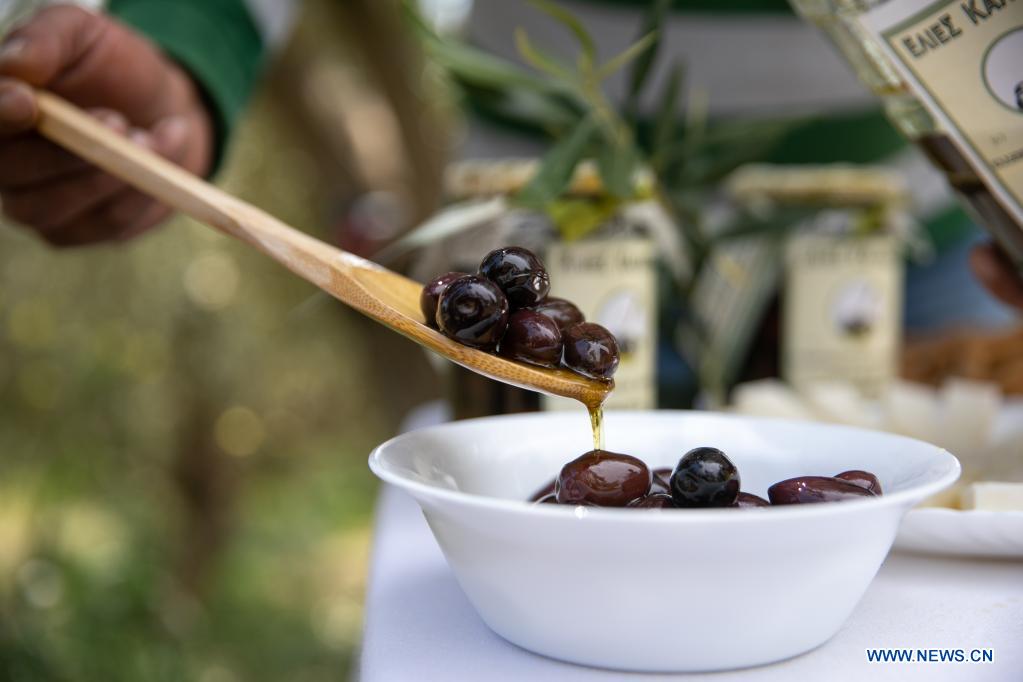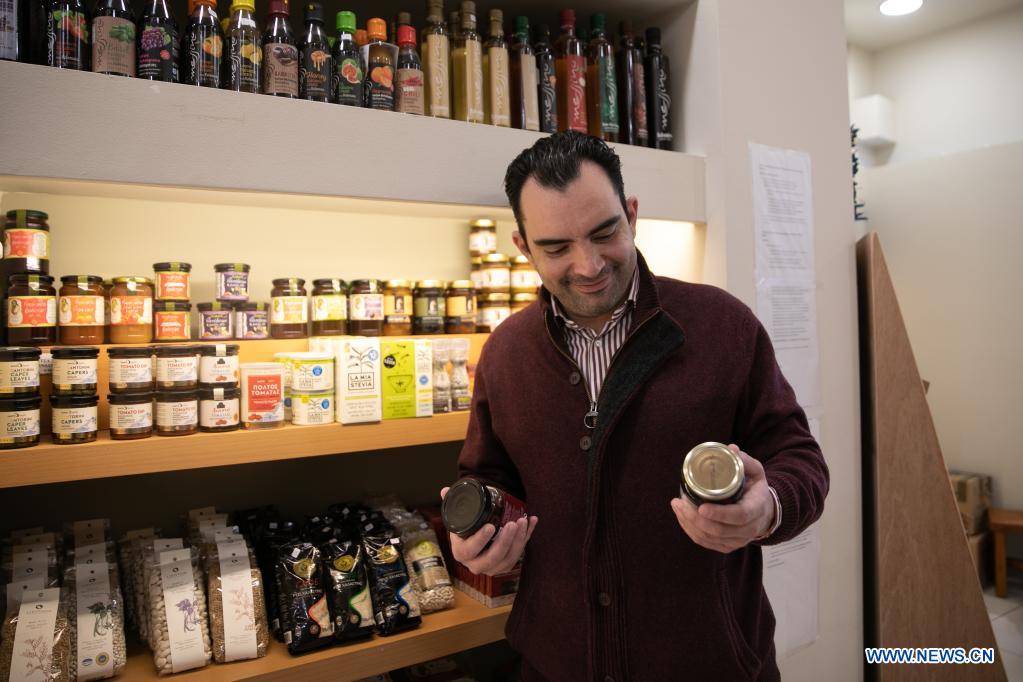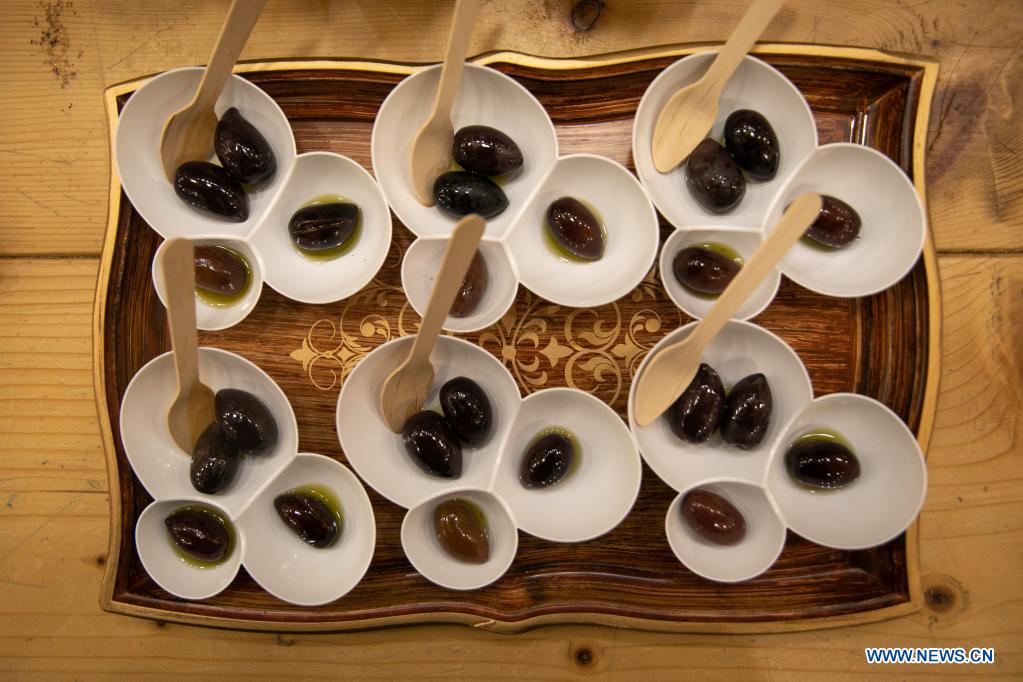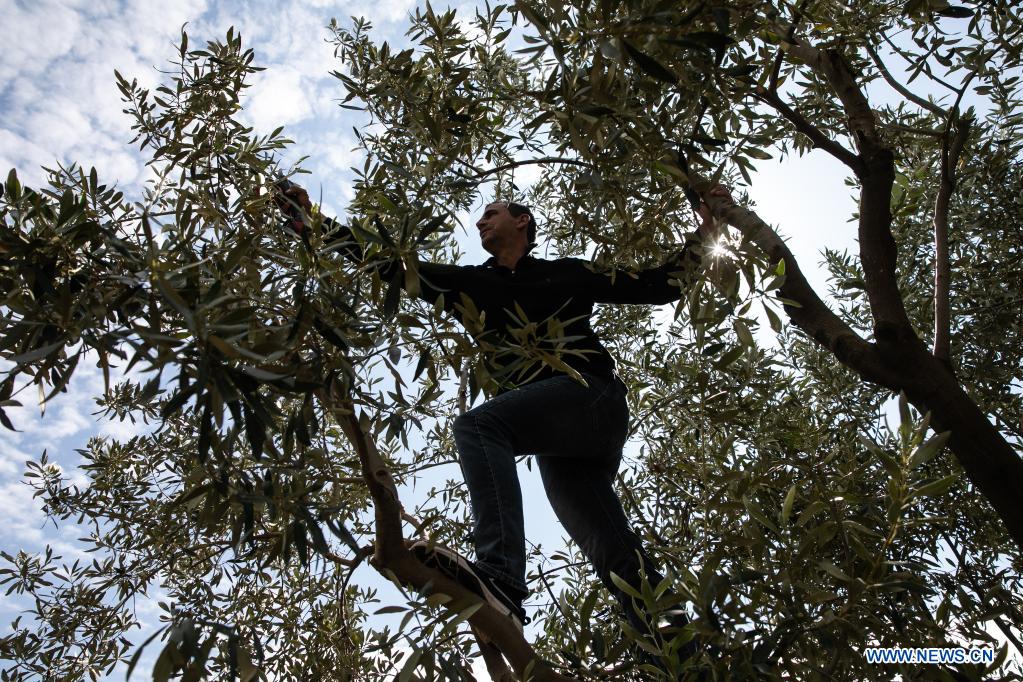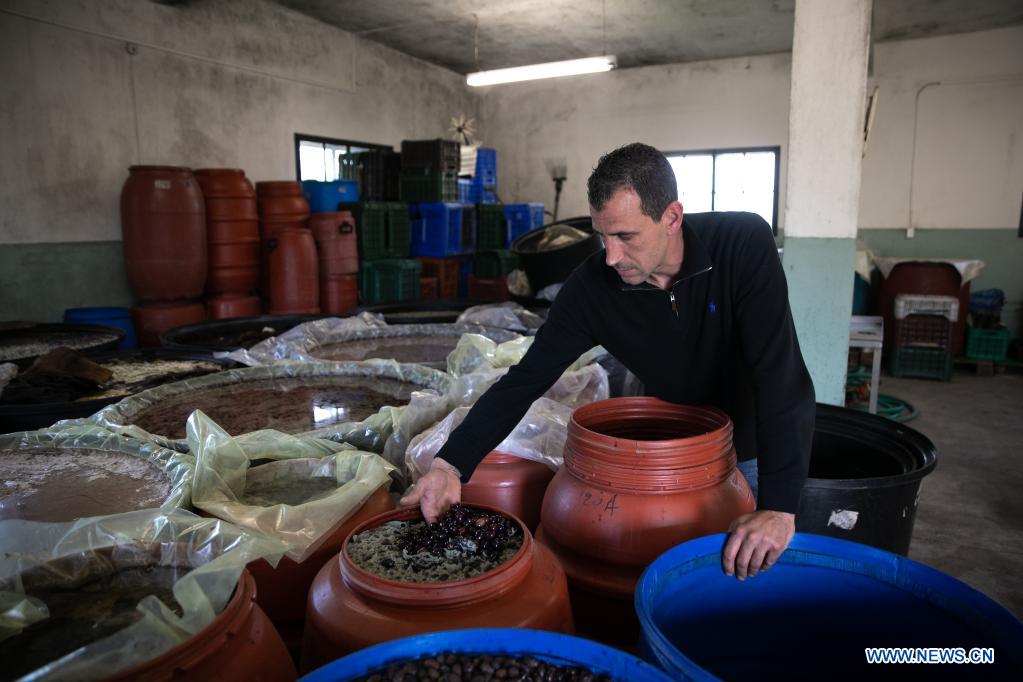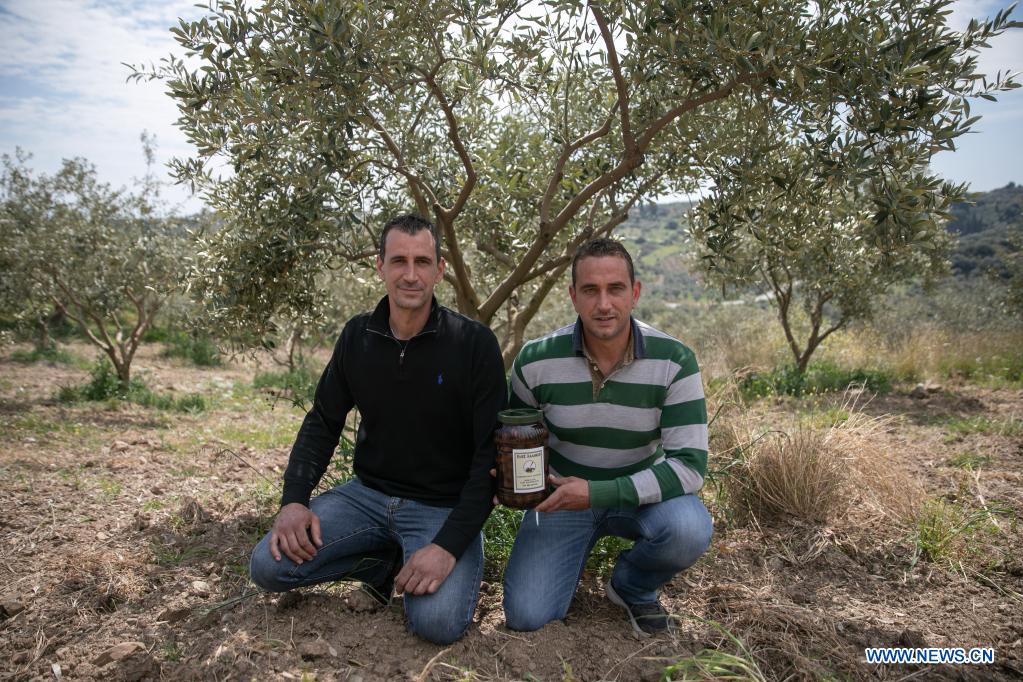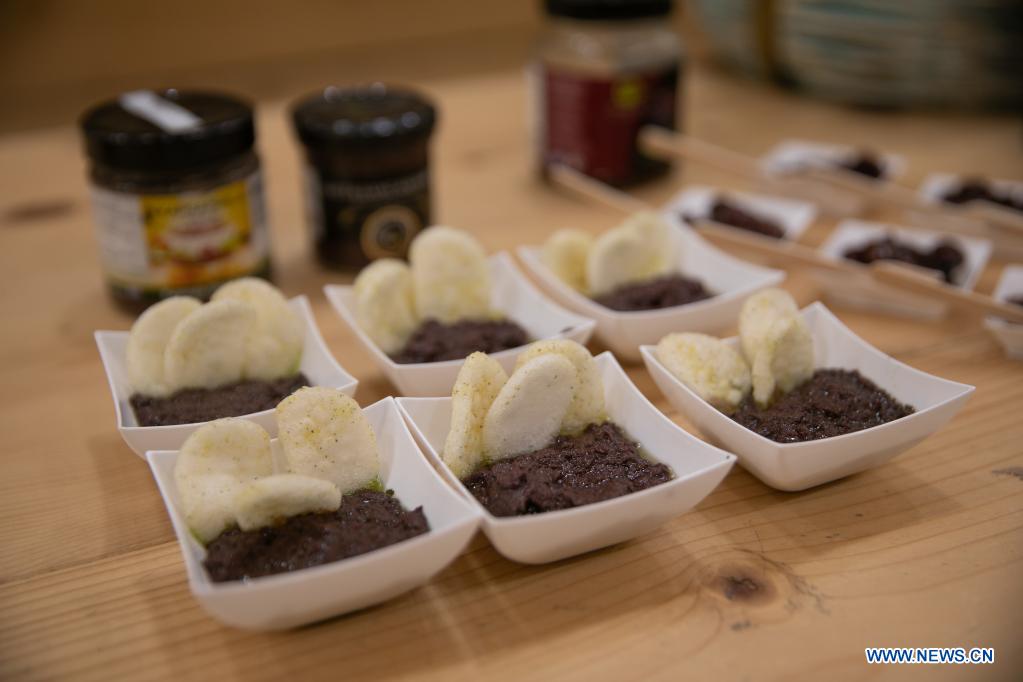Producers of Greece's Kalamata olives seek to conquer China as next big market
Known as the "black queen" of all Greek olives, the Kalamata, grown in the sun-kissed olive groves around Messinia in the southwestern part of the Peloponnese and named after the capital city of the region, has been an integral part of the local gastronomy and economy for centuries.
The Kalamata olives (Elia Kalamatas in Greek) are included in the list of some 200 geographical indications (GIs) of European and Chinese products that are now protected under a recent agreement between China and the European Union (EU) that entered into force on March 1.
Olives of the same variety are also grown in other parts of Greece, the Mediterranean and the world, but it is the microclimate, the soil, and the traditional methods of cultivation and preservation used in Messinia that make the Kalamata olives unique worldwide, growers, agronomists and gastronomy experts told Xinhua in recent interviews.
The authentic Kalamata olives have a deep black color when harvested ripe, they explained. Their texture is smooth and are almond-shaped with a sharp point "resembling an eagle's nail."
After slitting them, locals debitter and preserve them in salt, water and olive oil. They use no additives, like vinegar, in the final product, or else it would lose its protected status.
The authentic Kalamata olives are juicy with intense flavor. Traditionally they have been used mainly as table olives, but in recent decades they have also appeared in recipes for salad dressings, soups, casseroles or sauce enhancers.
The Kalamata olives are nutrient-rich and contain essential vitamins and antioxidants. Several studies have shown that their regular consumption may help lower the risk of cardiovascular diseases and several types of cancer.
"The levels of phenolic compounds are much higher in table olives than in olive oil," Panagiotis Katsaris, agronomist-biotechnologist and head of olive oil laboratory of the Hellenic Agricultural Organization (ELGO-DIMITRA) in Kalamata, explained to Xinhua. "Ingesting a single such olive per day gives our body the same amount of phenols as half a kilogram of olive oil would. This is the biggest and most basic advantage of table olives."
"Olives have a long history in Greece. We have references in many ancient Greek texts and on many murals or images on vases depicting the olive harvest and olive oil production. Olives are interlinked with the history of this place," said Katsaris who is also head of the farms of the Olive, Fruit and Vegetables Institute of Kalamata.
Katsaris was interviewed in the shade of "Mana Elia" (mother olive tree in Greek), the oldest registered olive tree in the Kalamata region. It is estimated to be 1,500-1,700 years old. This lofty tree is over 14 meters high and has a trunk perimeter of over nine meters.
This is believed to be the only olive tree in Kalamata to have survived the destruction of the Ottoman empire forces during the Greek War of Independence (1820-1831). After the war, the locals took branches from this tree and planted new olives in the region. All the olive trees of Kalamata and the surrounding areas are believed to originate from this very tree.
This is also how Constantinos Pavlopoulos' ancestors created their own olive groves. He is a third-generation olive grower. For him -- and for his brother and around 20,000 growers in the region -- Kalamata olives are their livelihood.
"It is a time-consuming and economically expensive process," Pavlopoulos said. "It is difficult to cultivate olives. You need to spend countless hours and days out in the field. We try to do all the work as much as possible manually so that we can have the most optimal product possible," he explained.
Pavlopoulos also avoids the use of herbicides. He sticks to the traditional environmentally-friendly methods of cultivation and wants to pass the torch to his children.
The simplest way to enjoy Kalamata olives is to taste them pitted and sliced in salad or served on crackers on a cheese plate, Panagiotis Papanikolopoulos, a certified olive oil taster and food blogger, said.
"In recent years, with the modernization of traditional products, new uses of olives have emerged. They appear in pastes, pates, sliced and pitted. All these sophisticated culinary uses are, of course, based on traditional recipes, such as the olive jam or the chutney with spicy notes like ginger and spoon sweets," he explained.
"There is a fine balance here between tradition and innovation," he stressed.
Giannis Pazios is general manager of the Messinia Union agricultural cooperative, which played an active role in the registration of the name "Elia Kalamatas" as a Protected Designation of Origin (PDO) in 1996 by the EU, as well as in the talks that led to the EU-China agreement.
"We believe it is a great step, as we can have the proper protection in a huge market like the Chinese, which has a special cuisine with simplified procedures for our products. It is very important, because we find new markets," he told Xinhua.
"A nice interaction is created. Chinese products will come to the EU and will become known to us, because we do not know them, and maybe we will integrate them in our daily life. At the same time, China, which is a very big market, can offer great opportunities to new producers to enter the cultivation (of Kalamata olives) if we develop trade ties with this country," he said.
Currently, the Messinia region produces about 10,000 tonnes of olives per year, with 4,000 tonnes exported across the world. The cultivation of Kalamata olives accounts for 75 percent of the region's agri-food production.


